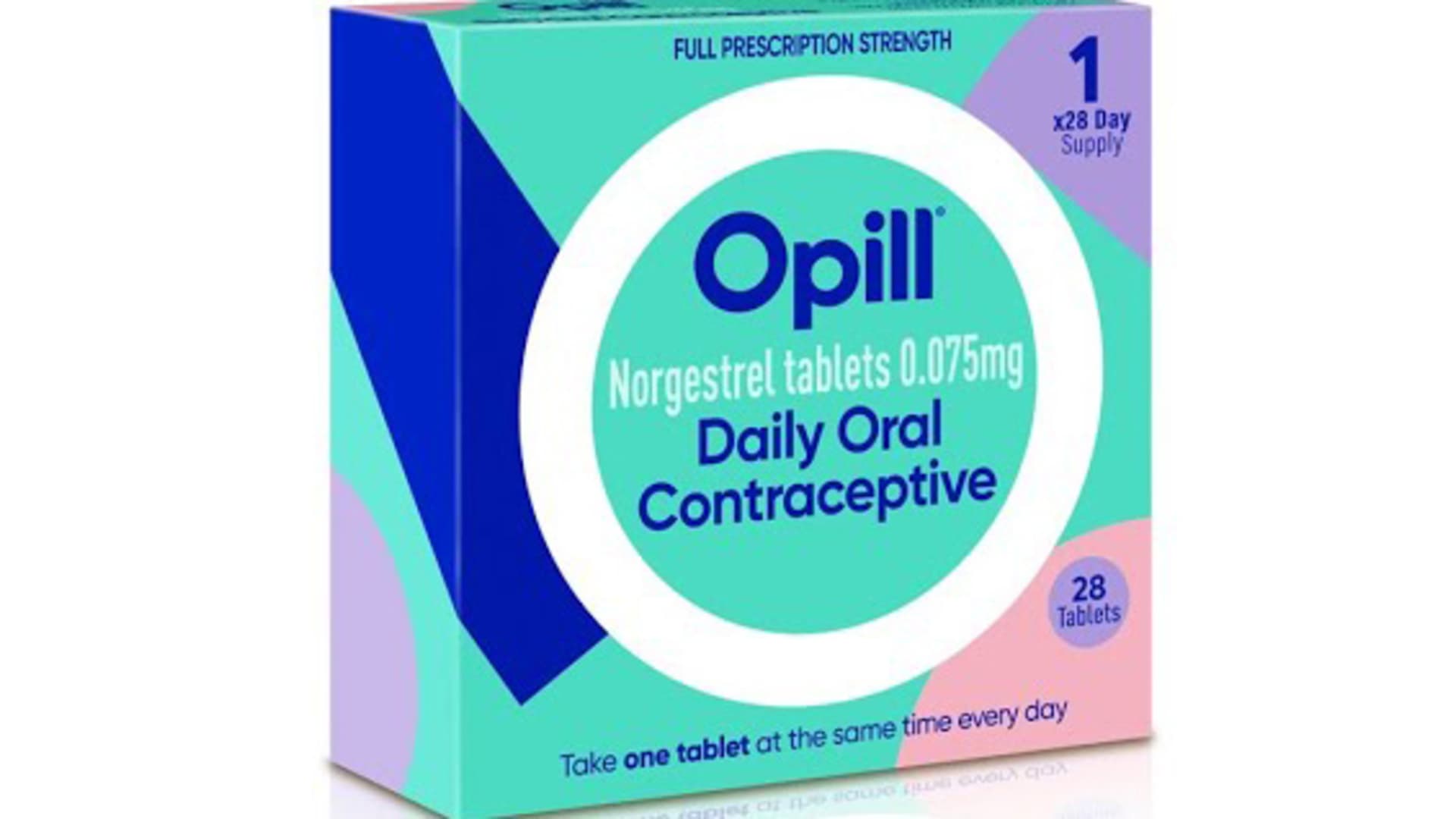HRA Pharma expects a final decision by the FDA this summer on its application for nonprescription sales of Opill, which is generically called norgestrel.
Source: Perrigo
The Food and Drug Administration on Thursday approved the first over-the-counter birth control pill, a landmark decision that will allow more women and girls in the U.S. to prevent unintended pregnancies without a prescription.
The daily pill, called Opill, was first approved by the FDA as a prescription in 1973.
The pill’s manufacturer, Paris-based HRA Pharma, said the contraceptive would most likely be available at drugstores, convenience stores, grocery stores and online retailers in the U.S. in early 2024.
HRA Pharma, a unit of Dublin-based pharmaceutical company Perrigo, said there will be no age restrictions on sales of the pill.
HRA Pharma has not announced the price of the pill, which will determine how affordable it will be to the public. But the company is committed to making the pill “accessible and affordable to women and people of all ages,” Frederique Welgryn, Perrigo’s global vice president for women’s health, said in a statement.
Perrigo’s stock price jumped 5% in early trading Thursday following the announcement.
Opill could significantly expand access to contraception, especially for younger women and those in rural and underserved communities who often have trouble getting their birth control.
The pill’s approval is a win for the Biden administration, which has tried to shore up reproductive rights as abortion restrictions rise in many states.
The Supreme Court’s decision to overturn the landmark Roe v. Wade ruling more than a year ago – which ended 50 years of federal abortion rights – has led to shrinking availability of the procedure nationwide and renewed calls for expanded access to birth control.
“Today’s approval is a groundbreaking expansion for women’s health in the U.S., and a significant milestone towards addressing a key unmet need for contraceptive access,” Welgryn said in the statement.
Oral contraceptives have long been the most common form of birth control in the U.S., used by tens of millions of women since the 1960s. But until now, all of them required a prescription.
Medical organizations like the American College of Obstetricians and Gynecologists and women’s health advocates have pushed for wider access.
More than 50 members of Congress in March 2022 also called on FDA Commissioner Dr. Robert Califf to ensure the agency reviewed applications for over-the-counter birth control pills without delay.
Those groups have noted that an estimated 45% of the 6 million annual pregnancies in the U.S. are unintended.
Unintended pregnancies have been linked to negative outcomes, including the reduced likelihood of receiving early prenatal care and increased risk of preterm delivery, according to the FDA. Those complications are also associated with adverse developmental and child health outcomes, the agency said.
Dr. Patrizia Cavazzoni, director of the FDA’s Center for Drug Evaluation and Research, said in a release that daily oral contraception is safe and “expected to be more effective than currently available
nonprescription contraceptive methods in preventing unintended pregnancy.”
Other nonprescription methods include condoms and spermicide.
Opill was found to be 93% effective in preventing pregnancy, similar to prescription oral contraceptives.
The pill contains a hormone called progestin, which prevents pregnancy by thickening the cervix mucus to block sperm from reaching and fertilizing an egg.
FDA scientists in May expressed concerns about whether women who have or had breast cancer would know not to use the drug. The hormone progestin can increase the risk of breast cancer returning.
The agency’s scientists were also concerned about whether some women with unexplained vaginal bleeding between menstrual cycles would know not to take Opill before consulting a doctor first.
But ultimately, a panel of advisors to the FDA agreed that most women could determine on their own whether the medication was appropriate for them to use.
That panel also voted unanimously to recommend making Opill available without a prescription.

